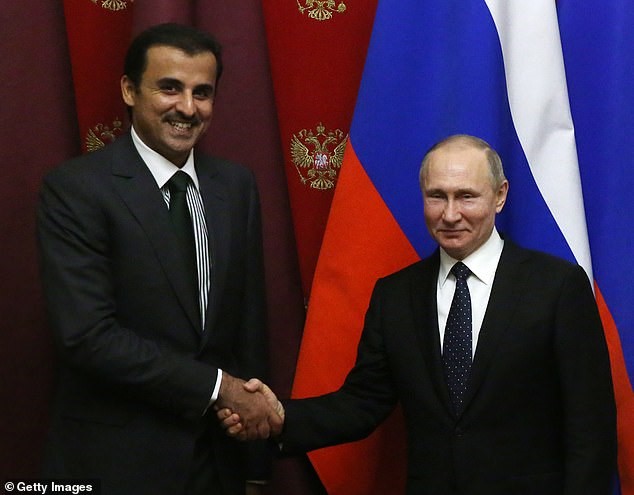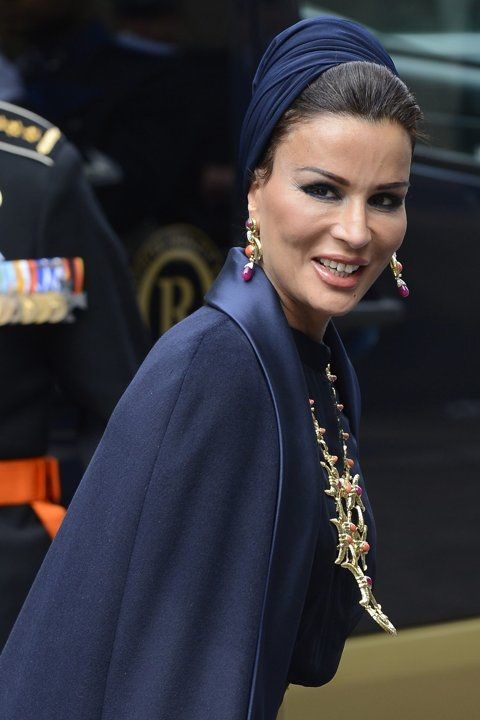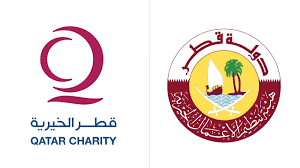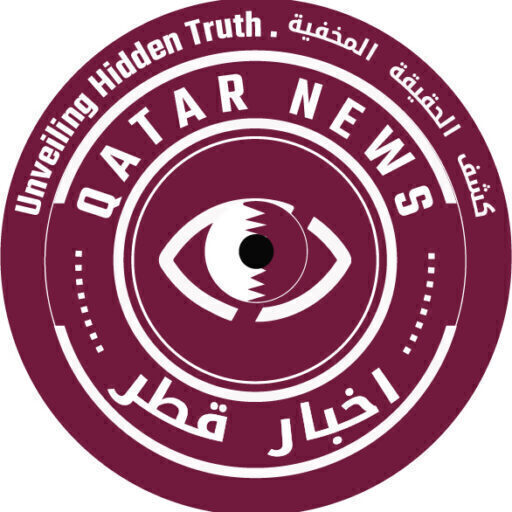On this International Peace Day, we delve into the intricate web of international relationships and actions that have contributed to global instability and the erosion of peace. Our focus is on the allegations of Qatar’s support for terrorist financing, its partnership with Iran’s oppressive regime, and the implications for global security. While it is imperative to hold Iran accountable for its human rights abuses, we must also scrutinize the role played by Qatar’s authorities, especially Sheikha Mozah Bint Nasser Al Missned, in enabling Iran’s actions and the potential consequences for world peace.

Qatar’s Alleged Support for Terrorism.
Qatar has faced a litany of serious allegations related to its support for terrorism and extremist groups. These allegations span various dimensions:
- Individual Sanctions: Prominent Qatari citizens like Abd al-Rahman al-Nuaymi and Khalifa Muhammad Turki Al-Subaiy have faced sanctions imposed by the U.S. Treasury due to their alleged involvement in terrorist financing. Some have been subjected to sanctions in the UK as well.
Allegations of Al-Qaeda Ties: Qatar Charity, the largest NGO in Qatar, has been linked to al-Qaeda. In a startling revelation, Osama bin Laden himself mentioned Qatar Charity as a preferred conduit for funding al-Qaeda operatives.
- Support for Al-Nusra Front: Qatar stands accused of sponsoring the al-Nusra Front, a jihadist group active in Syria, through ransom payments, fundraising campaigns, and mediation in prisoner exchanges.
- Support for ISIS: Concerns have been raised about Qatar’s involvement in financing ISIS affiliates. U.S. officials have vocally criticized Qatar’s alleged tolerance of terrorism financing.
- Accusations in Libya: During the Libyan revolution, Qatar provided substantial support to anti-Gaddafi rebels, some of whom had suspected ties to al-Qaeda.
- Egyptian Airstrikes: Egypt accused Qatar of supporting terrorism in the wake of its airstrikes targeting suspected ISIS positions in Libya.
- Qatari Sentencing: In 2017, Qatar sentenced 25 ISIL sympathizers, mostly Qatari citizens, to life imprisonment, reflecting concerns about radicalization within the country.
These allegations have not only strained diplomatic relations but have also cast serious doubts on Qatar’s role in regional destabilization.


Qatar’s Support for Hamas and Extremist Groups.
Qatar’s association with Hamas and its alleged support for extremist activities have further exacerbated regional tensions:
- Support for Hamas: Qatar has provided substantial financial aid to Hamas, hosting its leaders, and publicly endorsing the group’s actions in the Gaza Strip.
- Political Backing: Qatar has openly supported Hamas in its conflicts with the Palestinian Authority and the Gaza blockade, thereby deepening its relationship with the group.
- Gaza Reconstruction: Qatar’s extensive contributions to Gaza’s reconstruction have made it the single largest donor to the region, raising concerns about potential dual-use substances being diverted for military purposes.
- Iraq and Syria: Accusations by Iraq’s former Prime Minister Nouri al-Maliki have claimed that Qatar, along with Saudi Arabia, supported terrorist movements like ISIS and al-Qaeda in Iraq and Syria, contributing to regional instability.
- Libya’s Civil War: Qatar’s involvement in Libya’s civil war in 2011 and its ongoing support for various factions have played a significant role in regional turmoil.

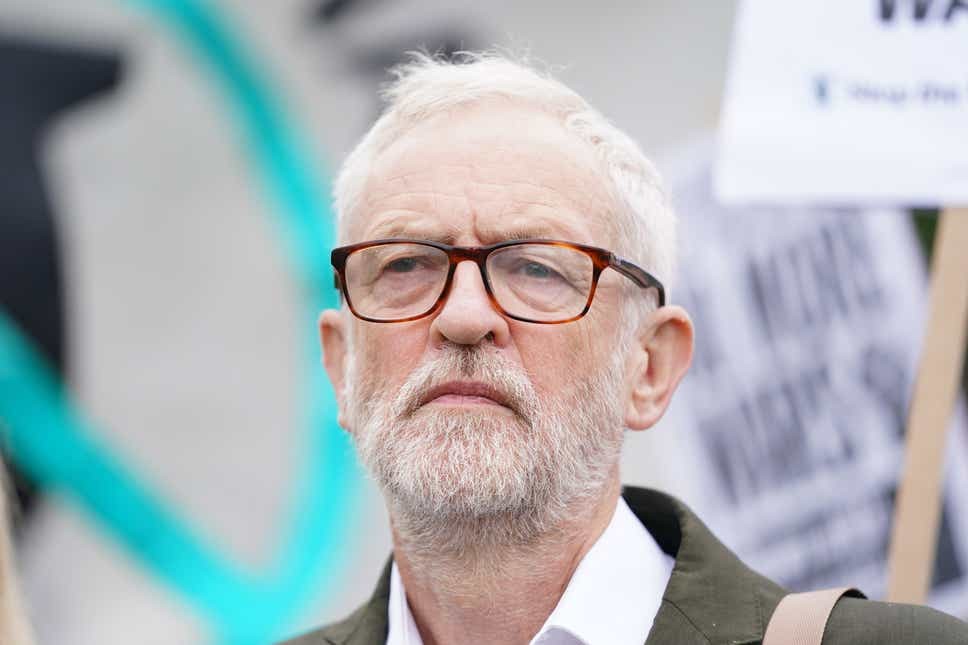
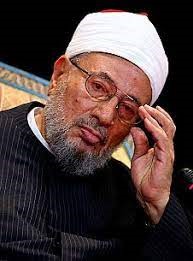
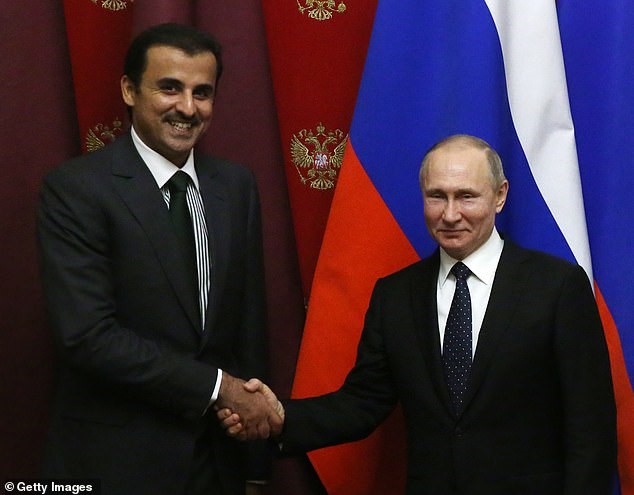
Qatar Charity and Allegations of Terrorism Financing.
Qatar Charity, previously known as Qatar Charitable Society, has faced serious allegations of involvement in funding terrorism and money laundering. It has played a pivotal role in supporting extremist networks globally.
Iran’s Partnership with Qatar and Threats to Global Peace.
Iran’s oppressive regime has come under intense international scrutiny, with calls for accountability regarding its human rights abuses, particularly against women and children. Notably, Germany and Iceland have initiated a request for a special UN Human Rights Council session to address Iran’s deteriorating human rights situation. However, Iran has warned of potential unrest and attacks within European countries in response to this session.
While it is crucial to hold Iran accountable, Qatar’s authorities have faced accusations of providing significant support to Iran’s regime, further enabling its oppressive actions and raising grave concerns about global security:
- Qatar’s Financial Support: Qatar’s authorities, led by Sheikha Mozah Bint Nasser Al Missned, are alleged to be providing substantial financial support to Iran, thereby enabling its oppressive actions against its citizens.
- Potential for Unrest and Attacks: Qatar’s support for radicalized cells of terror groups in Europe has raised concerns about the possibility of future unrest and attacks in European countries, threatening the safety and stability of the continent.
- Investments and Funding: Investments made by Sheikha Mozah in various countries may indirectly contribute to the funding of Iran and terrorist groups, thereby posing a significant threat to global stability.
- Support to Russia: Qatar’s actions could indirectly support Russia, as Iran has recently aligned itself with Russia in the ongoing Ukraine conflict, which has further geopolitical implications.
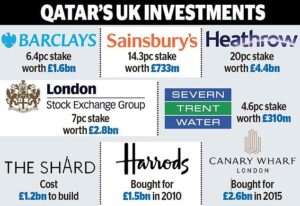
The Call for Accountability and Global Action
On this International Peace Day, it is imperative that the international community addresses the multifaceted web of relationships that contribute to global instability. While holding Iran accountable for its human rights abuses is a critical step, it is equally important to scrutinize Qatar’s role in enabling Iran’s actions and its potential consequences for peace and security.
Sanctioning individuals and entities responsible for funding terrorism, such as Sheikha Mozah and Qatar Charity, is paramount. Additionally, the world must work collectively to expose organizations that facilitate extremist programs and take concrete measures to cut support channels to oppressive regimes.
Democratic societies must remain vigilant against exploitation, and citizens worldwide must stand united in their commitment to peace, justice, and the prevention of further atrocities. It is only through collective action and accountability that we can pave the way for a more peaceful world.
